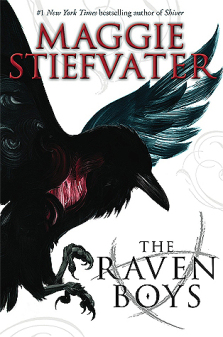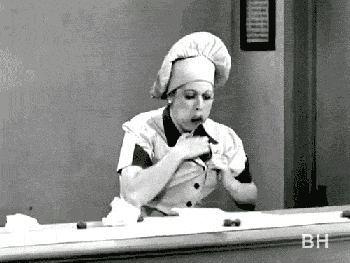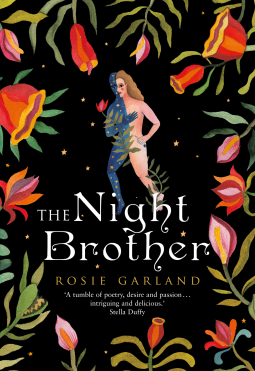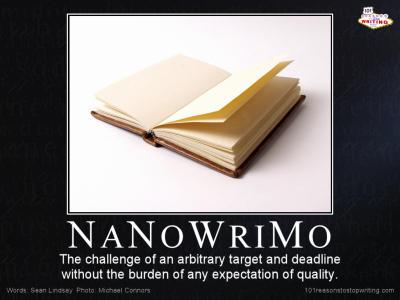 The day-job ate all of MissB’s reading time in the past few weeks. She greatly missed writing her blog and is so happy to be back this week with a review of Ruthie Knox’s Madly. Hopefully, a two-week hiatus won’t be repeated.
The day-job ate all of MissB’s reading time in the past few weeks. She greatly missed writing her blog and is so happy to be back this week with a review of Ruthie Knox’s Madly. Hopefully, a two-week hiatus won’t be repeated.
Truth be told, part of it was work and part of it was MissB trying to get through Knox’s long-anticipated return to romance with New York #2, Madly. And, it is “mad,” a wildly unhappy, chaotic romance about Allie Fredericks (Truly‘s heroine’s, May’s, baby sister) and Winston Chamberlain (About Last Night‘s hero’s, Nev’s, older brother). Madly is one of the most fraught romances Miss Bates has ever read (barring Judith Ivory’s Beast, which MissB. loathed) and she struggled to get through it.
[THERE BE SPOILERS.] The opening scene was intriguing, though Knox’s need to remind us that life is about screwing up and dealing with randomness is trying coloured it: “Allie made bad decisions when she felt uncomfortable … Bad decisions were just in her” and “Any life could turn on a dime. Hers had. Twice.” Also, the repetitive “I’m making a point” with the staccato sentences. BUT, it opens in a bar, the same one that Truly opened with, Wisconsin-in-NYC, Pulvermacher’s, and MissB. does enjoy a bar-opening. Allie is incognito, dressed in some silly get-up (there are MANY descriptions of ridiculous outfits in Madly, which signal the characters’ quirkiness to the reader, but chic MissB shuddered: not cute, not attractive, not fun to read about) spying on her mother and a supposed lover. Allie’s in charge of getting her parents’ 30th anniversary party off the ground. How can she, with her mother cavorting in NYC with a lover purported to also be Allie’s biological father? In walks the quite likeable hero-wimp, Winston, a divorced English banker of a certain age. Allie, to prevent her mother identifying her (Miss B. is confused on this point) launches herself at Winston by “licking his teeth.” MissB’s reader-antennae went on high alert.
BUT, still, somewhat amusing. Allie and Winston have insta-physical connection, as Allie muses, “This was so stupid. And awkward. And wrong-hot … his eyes crinkle[d] in a way that was caper-interested.” Okay, Miss B. also loves a good caper (though her first thought was that Winston’s eyes were green), she could go for this. Then, she read poor Winston’s response to Allie: “She was a small woman. Interesting to look at, but not beautiful. Painfully, hopelessly his type.” Oh dear.
Pain is the novel’s centre: psychic pain, painful fashion choices, and the pain of always screwing up, things spiraling out of control, and our inability to put them back together, except by the grace of embracing uncertainty. Winston, for one, carries a lot of pain, lingering after he almost screwed-up his baby brother’s life and destroyed his marriage: “Four years ago he’d made sense … Winston hadn’t understood that pain could live quietly in a room inside someone, locked down and fed by routines, by rigidity … ” Routines and rigidity are death-knells for Knox’s characters: healing is found when presuppositions, all the evils one has lived in one’s past through fear and fulfilling roles, are given over to living in chance and not-knowing-ness.
Winston muses about Allie: “What makes a woman fly hundreds or perhaps thousands of miles, don a disguise, hail a stranger, grab him by the lapels and lick his teeth? What’s got you scared? What’s made you sad? What’s your story, and can I get in on it?” Um, Win, honey, if you walk into a bar and a wannabe-Wisconsinian-Mata-Hari licks your teeth, I’d run as far away as I could get. Miss B. knew she was in reader-trouble at the first appearance of the second-person. But, no, Winston likes Allie and, given that his life consists of a Netflix queue of movies and TV shows (it appears that, for Knox’s characters, binge-watching Netflix is a sign of soul-healing), what does he have to lose: “It felt like at least this time, this one night, the adventure would be whatever happened between them.” Well, there you have it, folks, surrendering to adventure and chance with a self-pitying, whiny, crazypants-dressing woman will bring Winston what he never knew he wanted.
In the end, MissB could not really like Allie and she certainly, it follows from, couldn’t like Winston and Allie together. Winston is old and tired, or as he says in another prosy act of redundancy, he was “old and old and old.” However, it needs be said that Winston, unlike everyone else, is a sharp dresser. Allie is an immature, self-pitying, scaredy-cat bore. She means well: … so many things she didn’t understand about herself that she needed to figure out if she was going to do her job and bring everyone back together again”, but the reasons she wants to “bring everyone back together again” is to ensure that she’s the centre of their attention. There’s a smidgen of growth there and Madly may be a better Allie-coming-of-age story than romance. No one really emerges smelling rosy: characters readers may have loved in other books, like Nev and Cath, Ben and May, are rendered unappealing. It’s as if Knox is bringing out the worst of qualities she redeemed in previous books.
There’s also a lot of unfun, unsexy sex. Winston and Allie make a list, itemizing everything they want to do that is, ahem, non-invasive. There is physical pleasure in the acts Winston and Allie enact, but, to MissB at least, Allie’s perspective is she’d rather not be doing whatever she’s doing. Which is not to say that Winston is a rapey hero; on the contrary, he asks politely, respectfully, and frequently. It’s more that Allie does what she does, despite her preferred state, celibacy. None of this bodes well for the HEA, thought Miss B. And she was right; Madly throws the HEA a bone (well slathered with meaty life advice) with a definition of love that goes something like: love is leaving your sense of humour at the door, forgiving bad fashion choices, living with uncertainty, and unsexy sex. Now, THAT sounds more like life and MissB can’t say she enjoys it in her romance-reading. Knox is not interested in the fantasy, MissB gets that. And, she suspects there are readers enthralled with what Madly is trying to do with the genre. Miss Bates would’ve preferred to see Winston and Allie end up friends, give Winston a nice HEA with his badass, totally rocking PA, Chastity, and Allie another five years of badly-needed growing-up. With her reading intimate, Miss Austen, Miss Bates deems Madly “had a high claim to forbearance,” Emma.
Ruthie Knox’s Madly is published by Loveswept. It was released in March and may be procured from your preferred vendor. Miss Bates received an e-ARC from Loveswept, via Netgalley.
- More





